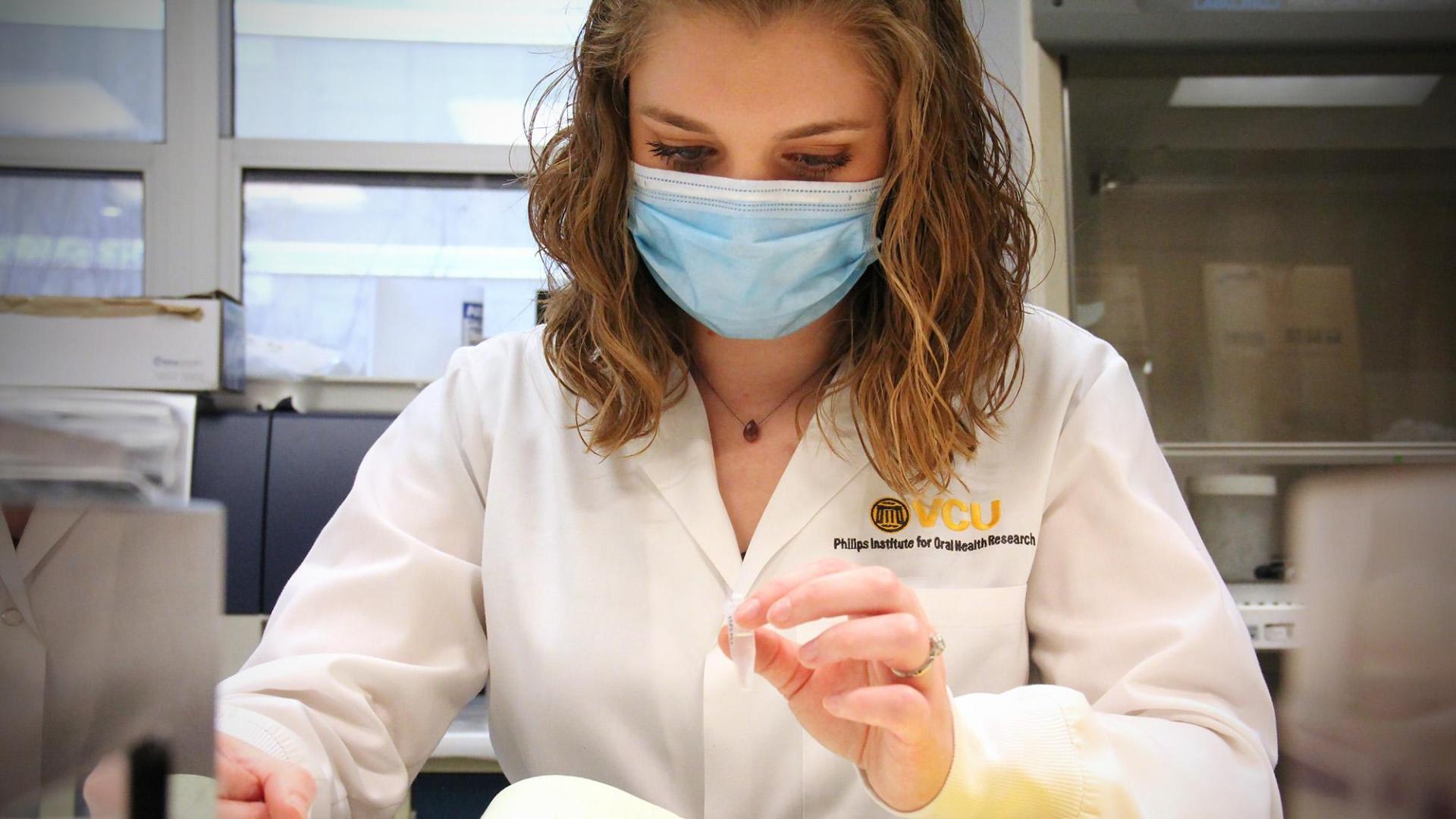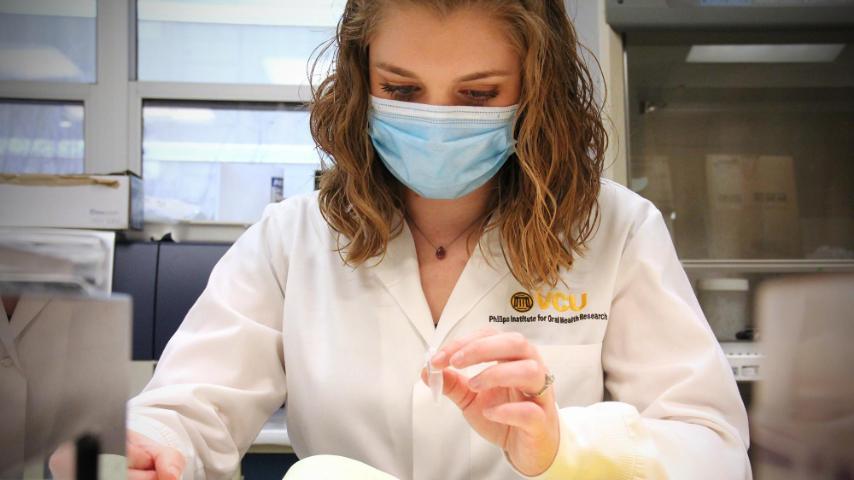
VCU SoD Ph.D. student receives National Institutes of Health grant to explore inflammatory disease processes
Hannah Lohner, a third-year student in the Ph.D. in Oral Health program at VCU School of Dentistry, was recently awarded an F31 Fellowship Grant from the National Institutes of Health totalling nearly $120,000 over three years. Working in the lab of Huizhi Wang, M.D., Ph.D., associate professor in the Philips Institute of Oral Health, Lohner will use the funding to conduct research into processes driving diseases associated with inflammation.
Specifically, Lohner will examine the interaction of certain types of oral bacteria with an enzyme known as HDAC6 (histone deacetylase 6). Prior research has shown that HDAC6 plays a role in “turning on” genes involved in inflammation.
“The mouth is full of bacteria, some of which have negative impacts on our health while many more play a role in supporting our health,” said Lohner. “This research may ultimately allow us to develop treatments for oral diseases that target the process behind inflammation itself rather than widely targeting bacteria, which may ultimately do more harm than good.”
HDAC6 has been shown to play a role in a number of diseases, and currently there are several clinical trials investigating ways to block HDAC6 in the treatment of cancer and pain.

As part of the Ph.D. in Oral Health program, Lohner rotated through different laboratories in the Philips Institute of Oral Health to get experience in multiple disciplines. Wang’s lab was her third and final rotation, and she became fascinated with his prior research involving HDAC6. While Wang’s studies investigated drugs and other ways of blocking the effects of HDAC6, Lohner’s experiments will involve mice that do not produce the enzyme at all. By eliminating HDAC6, she can determine what role it plays in the disease process.
“I’m hopeful my research will add to and confirm Dr. Wang’s previous findings,” said Lohner, who was interested in becoming a dentist when she was younger but eventually discovered she was more fascinated with the science behind oral health. “I’m excited for the opportunity to focus on this project over the next several years and contribute to science that may ultimately improve or even save people’s lives.”
Lohner’s research is supported by the National Institute Of Dental & Craniofacial Research of the National Institutes of Health under award number F31DE031968. This content is solely the responsibility of the authors and does not necessarily represent the official views of the National Institutes of Health.